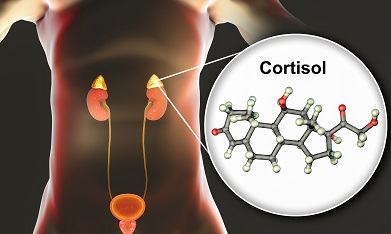Cortisol is a crucial hormone in the human body, often referred to as the “stress hormone.” It plays a vital role in regulating various physiological functions, including metabolism, immune response, and the body’s response to stress. While it is essential for maintaining homeostasis, an imbalance in cortisol levels can lead to numerous health issues.
What Is Cortisol?
Cortisol is a steroid hormone produced by the adrenal glands, which are located on top of the kidneys. It is part of the body’s endocrine system and is released in response to stress and low blood glucose levels. The hypothalamic-pituitary-adrenal (HPA) axis controls its secretion, ensuring that the body can adapt to different situations effectively.
Functions of Cortisol in the Body
Cortisol serves several important functions, including:
- Regulating Metabolism: It helps in the breakdown of carbohydrates, proteins, and fats, ensuring the body has enough energy during stressful situations.
- Managing Stress Response: When faced with a stressful event, cortisol increases blood sugar levels and enhances brain function, preparing the body for a “fight or flight” response.
- Supporting Immune Function: Cortisol has anti-inflammatory properties that help regulate the immune system and prevent excessive inflammation.
- Maintaining Blood Pressure: It helps in maintaining proper blood pressure levels by regulating the balance of water and electrolytes in the body.
- Enhancing Memory and Cognitive Function: Cortisol influences brain function and plays a role in memory consolidation and focus.
Cortisol Imbalance: Effects on Health
Both high and low cortisol levels can negatively impact health.
High Cortisol Levels (Cushing’s Syndrome)
Excessive cortisol production can lead to a condition known as Cushing’s syndrome, which is characterized by:
- Weight gain, especially around the abdomen and face
- High blood pressure
- Weak muscles and bones
- Mood swings, anxiety, and depression
- Increased blood sugar levels, leading to a higher risk of diabetes
Low Cortisol Levels (Addison’s Disease)
Insufficient cortisol production, often due to adrenal gland dysfunction, results in Addison’s disease, which may cause:
- Chronic fatigue and weakness
- Low blood pressure
- Unexplained weight loss
- Darkening of the skin
- Nausea and vomiting
How to Maintain Healthy Cortisol Levels
Balancing cortisol levels is crucial for overall well-being. Here are some ways to regulate cortisol naturally:
- Manage Stress: Engage in relaxation techniques such as meditation, deep breathing, and yoga to reduce stress levels.
- Get Enough Sleep: Proper sleep is essential for maintaining healthy cortisol cycles. Aim for 7-9 hours of quality sleep each night.
- Exercise Regularly: Moderate physical activity helps regulate cortisol, but excessive high-intensity exercise can lead to elevated levels.
- Eat a Balanced Diet: Consuming a diet rich in whole foods, proteins, and healthy fats can support adrenal function and maintain balanced cortisol levels.
- Limit Caffeine and Sugar: Excess caffeine and sugar intake can spike cortisol levels, leading to long-term hormonal imbalances.
Conclusion
Cortisol is an essential hormone that plays a key role in stress response, metabolism, and immune function. While it is necessary for survival, an imbalance can lead to various health problems. Maintaining a healthy lifestyle, managing stress, and ensuring proper sleep can help keep cortisol levels in check, promoting overall well-being.















Leave a Reply